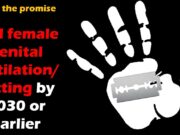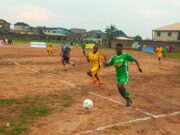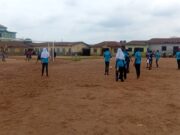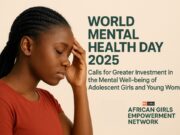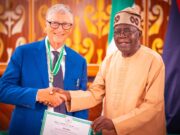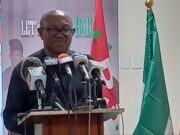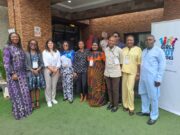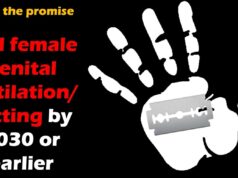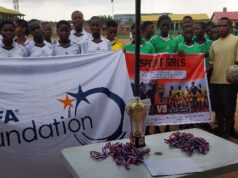February 12, 2025 — by Solomon Asuquo
The Civil Society for HIV/AIDS in Nigeria (CiSHAN) has called on the Nigerian government to take immediate action in mobilizing domestic resources to sustain the country’s HIV response. In a statement issued by Dr. Bright Oniovokukor, the South-South Zonal Coordinator of CiSHAN, the group expressed deep concern over the heavy reliance on donor funding, warning that Nigeria’s progress in combating HIV/AIDS is at a critical juncture.
Nigeria has recorded significant strides in its HIV response, primarily due to international donor support. Antiretroviral therapy (ART) has helped slow the progression of HIV to AIDS, and the “Undetectable = Untransmittable” (U=U) campaign has increased awareness about the importance of viral suppression. Additionally, many women living with HIV have successfully given birth to HIV-negative babies, showcasing the effectiveness of prevention measures. However, CiSHAN warns that these gains are now at risk due to inadequate domestic funding.
The press release read in part: “Nigeria’s HIV response has made significant strides in recent decades, driven largely by donor funding. The introduction of antiretroviral therapy (ART) has slowed the progression of HIV to AIDS, and the ‘Undetectable = Untransmittable’ (U=U) campaign has raised awareness about the importance of viral suppression.”
Dr. Oniovokukor further stated, “With the US government’s recent review of its foreign aid, the HIV response in Nigeria is facing a critical juncture.”
It would be recalled that the Trump-Vance-led government has recently frozen foreign aid, further exacerbating the uncertainty surrounding Nigeria’s HIV response efforts.
Challenges Threatening Nigeria’s HIV Response
CiSHAN highlighted several pressing issues that could undermine progress if not addressed:
- Funding Uncertainty – The pause in US interventions has created panic within Nigeria’s HIV response efforts, as many programs remain heavily dependent on donor support. For years, national, state, and local governments have failed to allocate sufficient funding to sustain HIV programs.
- Poverty and Economic Challenges – Economic hardship is pushing individuals into risky behaviors, such as transactional sex, while limited access to condoms exacerbates the risk of HIV transmission.
- Drug Use and Risky Behaviors – The rising prevalence of drug use among Nigerian youths and its link to unsafe sexual practices is accelerating the spread of HIV.
- Lack of Awareness and Sensitization – The shift in donor focus, particularly from the US, has led to a decline in HIV prevention efforts, leaving many children and adolescents uninformed and vulnerable to infection.
CiSHAN’s Call to Action
To prevent a setback in Nigeria’s fight against HIV/AIDS, CiSHAN has issued urgent recommendations:
- Declaration of a State of Emergency – President Bola Ahmed Tinubu should declare a state of emergency on HIV response to mobilize urgent national action.
- Increased Domestic Funding – Federal, state, and local governments must commit to mobilizing domestic resources for HIV response. Dr. Oniovokukor emphasized, “Despite the Abuja Declaration’s call for governments to allocate at least 15% of their national budgets to health, Nigeria’s 2025 budget has allocated less than 0.0001% to HIV programs. This is unacceptable.”
- Stakeholder Collaboration – A unified response involving government agencies, civil society, and the private sector is essential to sustaining HIV efforts. CiSHAN also noted that the civil society response has weakened and emphasized the need for a renewed, collective effort.
A Critical Moment for Nigeria’s HIV Response
CiSHAN warns that inaction could reverse the progress made over the past two decades. With concerted efforts and a strong commitment to domestic funding, Nigeria can sustain its HIV response and achieve its goal of ending AIDS by 2030.
“The time to act is now. Nigeria cannot afford to lose the gains made in the fight against HIV. We must prioritize our health systems and ensure that our response is driven by sustainable funding and strategic policies,” Oniovokukor urged.
As Nigeria navigates the future of its HIV response, the question remains: Will the government step up to the challenge, or will decades of progress be undone?
The Moment for Women Magazine will continue to monitor developments on this critical issue.

